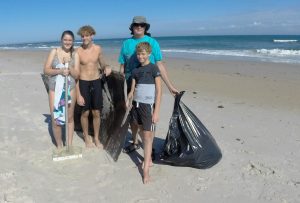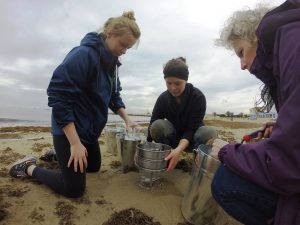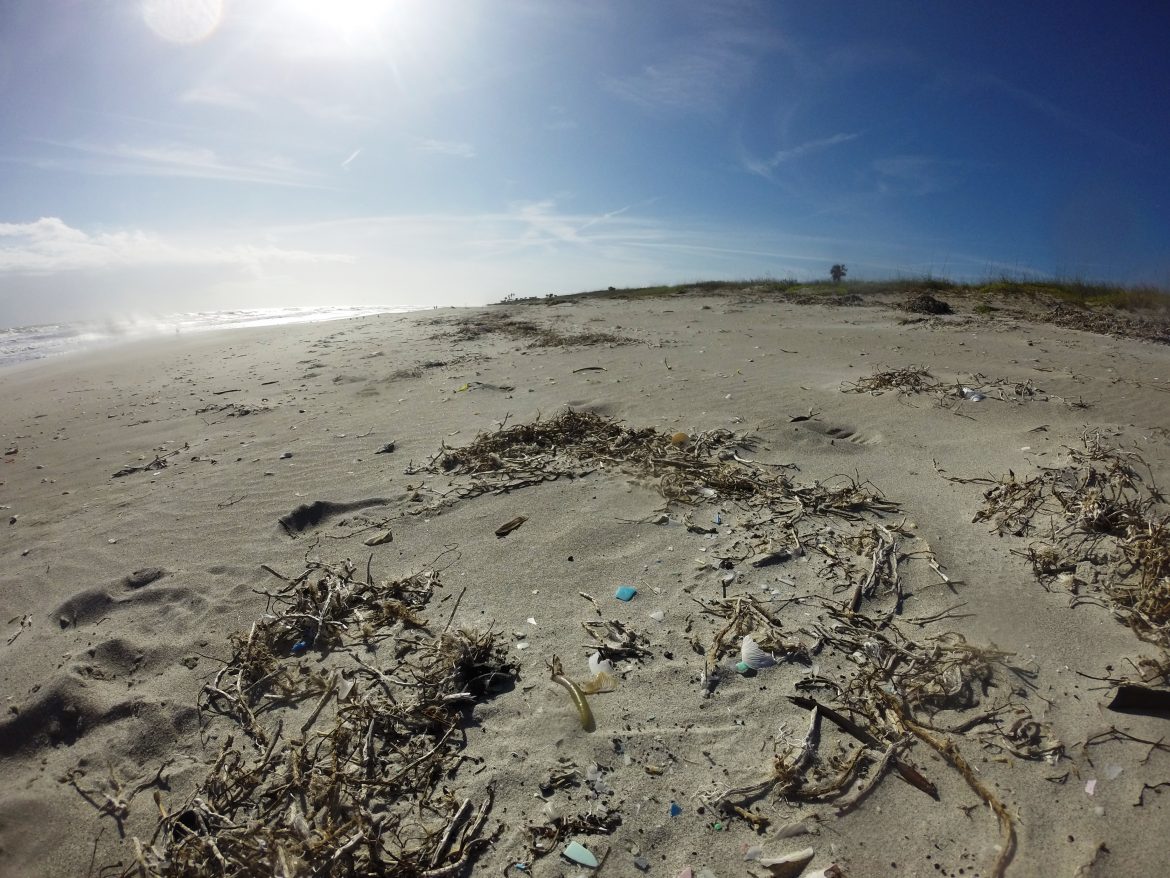This post was originally shared a few years ago, but wanted to repost it for World Oceans Day today. The practice of cleaning up our oceans, beaches, and other bodies of water can be a sacred spiritual practice for this summer or winter.
One way of thinking about sustainability can be found in the Biblical book of John Chapter 10, verse 10. Jesus proclaims that He came to give abundant life. Often when we reflect on sustainability we emphasize restraint, reducing and perhaps a sense of loss. Genesis 1 gives us a picture of the ocean as a place of teeming, abundance, diversity and fruitfulness. Pictures of God’s goodness throughout Scripture focus on His lavishness which we sing of in that simple chorus “How wide and deep and long and high is the love of God.” God’s vision for the sustainable life then is not so much John the Baptist in the desert, but the heavenly banquet prepared for us.
We are subverting that vision of the abundant life through our own creation – plastic. That natural fruitfulness and ecological cycles are interrupted by plastic which does not break down or get naturally recycled as does the rest of God’s creation. We think we need more time so we buy “disposable” plastic plates, which in fact never go away! We think we can save money and buy something plastic which we can then throw away rather than something that will last.

Clean Up Day 2017
All of this “saving” of time and money ultimately costs us – often time and money, but also our health, mental and physical, and the health of our planet. For plastic does not go away. The deepest ocean depths are littered with our plastic. Clean up the big bits of plastic and there will still be loads of microplastics. Plastic breaks down into smaller and smaller pieces called microplastics, pieces of plastic less than 5 mm (3/16 inch) in size. A Rocha has developed a toolbox to help you learn about microplastics and take action. I encourage you to check it out, particularly our Bible study. What does the Bible say about plastic? You might be surprised at what you discover in this inductive study.
The science of microplastics is still in its infancy. However, it is becoming clear that these small pieces of plastic are getting into food webs. Krill in Antarctica, which are a small crustacean which whales thrive on eating, are digesting microplastics. The problem is that they are only becoming nanoplastics! Birds appear to have a particularly affinity for the small of plastic that has been in the ocean and many individuals have been found their stomach full only of plastic. We don’t know yet what this means for human health and well-being. These small plastics appear to be like sponges for toxins. Are these toxins bio-accumulating up the food chain, similarly to toxins such as mercury? Scientists are working on this question, but if ever there was a need for prudence it is likely here in our appetite for plastic products.
So do read through blogs and check websites on how to reduce your plastic use – some good ones include the one you are reading and also those by Ruth Valerio. There is a Plastic-Less Living FB site and many websites to help you live more sustainably in regards to plastic pollution, for example the Beat the Microbead site. In A Rocha’s Microplastics Toolbox there is a Media section which will direct you to some of the better ones.

Filtering for plastic
A Rocha International, the Anglican Communion Environment Network and other partners are beginning to mobilise the global church to take part in next year’s coastal cleanup on Sept 15, 2018. A beach cleanup guide is available to help those who want to organise their own events (also in Spanish). We also encourage churches to find a beach cleanup near them using the International Coastal Cleanup website and join their neighbours in this God-honouring and community-serving activity. If you are not near the coast – a lake or river will do just as well! It is a practical way to not just reduce your plastic use, but contribute to the beautifying of God’s world. It is also a lot of fun! Consider adding it to your church’s mission trips as this church did on its trip to the Bahamas. Make sure you let us know so we can track and report on the global Church’s involvement in this important and missional activity.
Most importantly, though, determine in your heart that God’s plan for the planet and for you is goodness and abundant life through Christ. Reflect on how you are subverting that plan through how you use plastic. Sustainability will lead to an abundant life for all – people, places and all the life they hold.
Bio for Dr. Robert Sluka
 Dr Robert D Sluka leads A Rocha’s Marine and Coastal Conservation Programme (www.arocha.org/marine). He is a curious explorer, applying hopeful, optimistic and holistic solutions to all that is ailing our oceans and the communities that rely on them. Dabbling in theology, he writes on the interface between Christian faith and marine conservation. He has worked cross-culturally, living for extended periods in Australia, India, Great Britain and his native USA where he currently resides. Robert’s research focuses on marine biodiversity conservation, plastic pollution, and fisheries, particularly marine protected areas. The ultimate goal is to glorify God through oceans and communities being transformed using holistic marine conservation. @BobSluka on Twitter or email him.
Dr Robert D Sluka leads A Rocha’s Marine and Coastal Conservation Programme (www.arocha.org/marine). He is a curious explorer, applying hopeful, optimistic and holistic solutions to all that is ailing our oceans and the communities that rely on them. Dabbling in theology, he writes on the interface between Christian faith and marine conservation. He has worked cross-culturally, living for extended periods in Australia, India, Great Britain and his native USA where he currently resides. Robert’s research focuses on marine biodiversity conservation, plastic pollution, and fisheries, particularly marine protected areas. The ultimate goal is to glorify God through oceans and communities being transformed using holistic marine conservation. @BobSluka on Twitter or email him.

